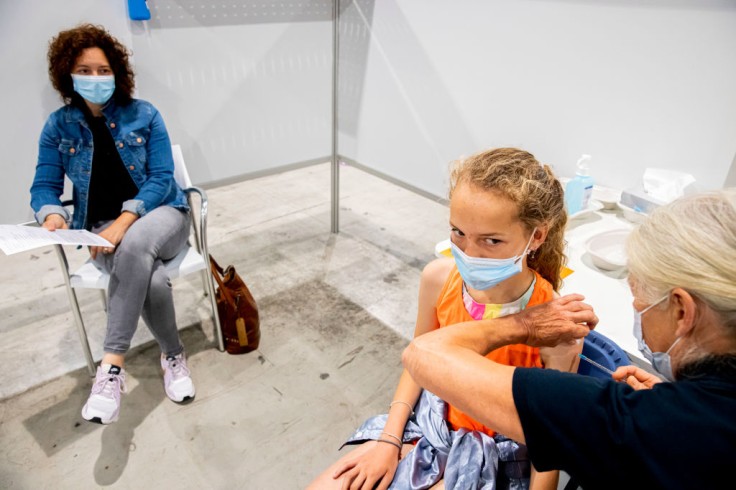
COVID-19 remains a top concern for many parents in the U.S. because of their unvaccinated children. As families try to navigate the risks of the virus among children below 12 years old, some are worried about the long-haul effects of the illness.
Delaware dad Daniel Horowitz, 42, has been bringing his children, Emily, 8, and Adam, 4, to amusement parks this summer, where there is a face mask policy for unvaccinated individuals. The father, however, has noticed that the public doesn't follow the policy, triggering his worries for his unvaccinated kids.
In Wisconsin, half of the Albert Family have had their vaccination as parents John and Kathlyn work in a high-risk hospital setting. Their 13-year-old son Landon has also gotten his first Pfizer shot since kids 13 years old and above are now eligible for the jab. They have three other children below 11 years old who are not yet allowed to have the vaccine.
The Alberts said that they want to do many outdoor activities or visit families in other states with their kids. However, they continue to hold off on such plans more than a year after the pandemic until the younger children are safer from the virus.
Many parents like Horowitz and the Alberts ask for more precise guidance from authorities like the Centers for Disease Control and Prevention (CDC) on how families must navigate their lives to protect their vulnerable children. One parent said that it's a difficult premise to navigate "when the information is so nebulous."
The CDC released new guidelines on July 9 requiring all unvaccinated people to wear face masks indoors and in crowded places.
COVID-19 Risks on Unvaccinated Children
Studies show that, unlike unvaccinated adults, children below 12 years old develop asymptomatic or mild symptoms of COVID-19 if infected. However, the experts also said that the children could develop long-haul symptoms, especially from severe COVID-19 variants like Delta.
Long-haul COVID entails lingering symptoms long after the infection has turned negative. These include frequent fatigue, loss of smell or taste, as well as muscle and joint pain. In worst cases, children may develop multisystem inflammatory syndrome (MIS-C), a life-threatening condition affecting vital organs of the body, such as the heart, kidneys, and lungs. In June, experts in Minnesota recorded 95 MIS-C cases in kids between the ages of 6 to 19, but they did not need hospitalization.
Studies also estimated that long-haul COVID lasts about 12 weeks for some patients, regardless of age. At least a third of these patients do not need hospitalization, but they might have to visit a clinic to get help for their symptoms.
To date, the experts are still understanding the long-term effects of the infection in adults. They have yet to begin studying the effects on children. One researcher from the Pediatrics Department of the University of Minnesota Medical School said that there are still not enough studies to determine the long-haul complications of COVID-19 in younger patients.
Carefully Assess the Risks
With vaccination for children below 12 years old still unavailable, some experts advise parents to carefully make assessments and weigh what they can tolerate for their children's wellbeing. They might also need to keep track of the transmission rates for unvaccinated kids in their local area to be well informed.
As America is slowly in a "pand-exit" phase, parents with younger children need to keep in mind that while COVID-19 has a lower risk in unvaccinated kids, it is not zero. Young children must still follow the guidelines to keep wearing a face mask or practice social distancing. For now, visits to other homes and gathering with other people must be limited.